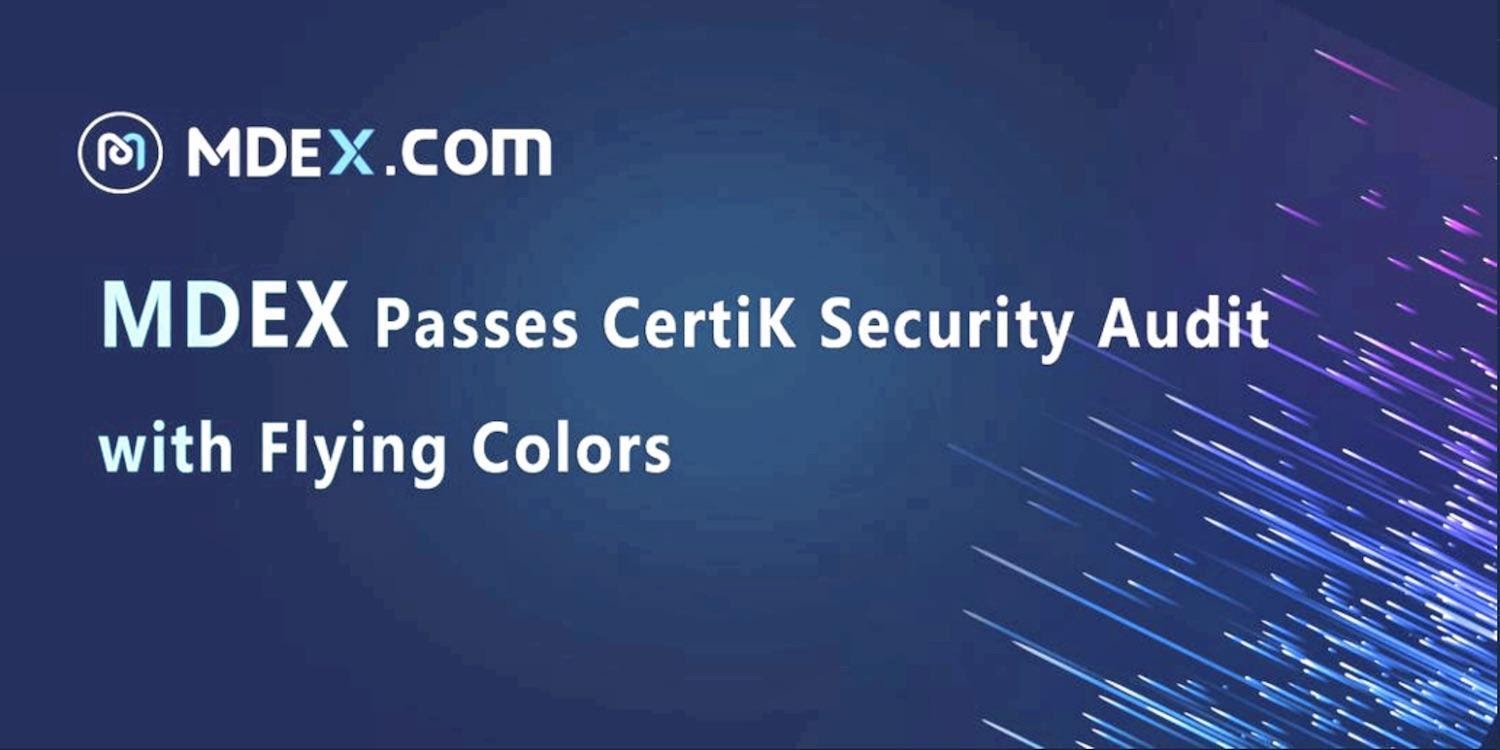
Singapore, March 30, 2021 – Leading decentralized exchange MDEX recently obtained a 94% security audit score on CertiK, a leading blockchain security firm. Its high score indicates it is amongst the safest leading DeFi (decentralized finance) projects.
CertiK is a leading global blockchain security company, founded by computer science professors from Yale and Columbia Universities. By leveraging cutting-edge technology and expertise, CertiK has performed more than 400 audits and secured over $10 billion in digital asset value. It has conducted audits for top crypto exchanges Binance, Huobi, OKEx, and more than 100 top-shelf blockchains and DeFi protocols such as Tera, Bancor, Shapeshift, and Blockstack.
MDEX Passes CertiK Security Audit with Flying Colors
MDEX smart contracts have undergone CertiK’s security risk audits and formal verification, passing with flying colors.
At the time of this writing, an overview of MDEX security audit shows that it has scored 97% in Static Analysis, with minor vulnerability & security check issues; 100% in On-chain Monitoring, with healthy real-time transactional tracking systems; 92% in Social Sentiment, based on a positive sentiment analysis; 96% in Governance & Autonomy, a ‘Strong’ score in contract checking and activity tracing over decentralized practices; 100% in Market Volatility, meaning it has robust indicators over trading volume/liquidity/depth; and 88% in Safety Assessment, a ‘Good’ score based on fact-based and multi-faceted safety evaluations.
The CertiK audit (download link here) reports that, overall, MDEX “source code is well written with security practices” and that the “business logic is comprehensive and implemented accordingly.” Having done rounds of communications with MDEX over potential improvements, CertiK notes that “the MDEX team has resolved the questions promptly”.
Security is Paramount for DeFi Smart Contract Protocols
While security is important for both CeFi (centralized finance) environments, it is critical for DeFi environments.
Centralized information systems are secured by the companies that provide them. In the DeFi world, instead of placing trust in the corporate entities, smart contracts are entrusted to supervise code that could be handling billions or millions in funds.
Being that smart contracts are immutable once deployed, security risks in the code must be attended to before release. Bugs or security vulnerabilities can lead to a mishandling of funds or expose the smart contracts for hacking opportunities.
MDEX Continues Commitment to Security
MDEX, an automatic market-making DEX, currently implements a dual chain and dual mining mechanism of liquidity and translation mining, offering low-to-zero fees and fast transactions, which has entrenched its position as the leading DEX on both Coinmarketcap and Coingecko.
One of the largest decentralized protocols deployed and maintained at HECO, MDEX clearly understands that decentralization goals cannot be achieved without provable trust throughout all facets of blockchain.
As MDEX continues in its goal of being the composite DeFi ecosystem that integrates DEX, IMO and DAO, the security and correctness of its smart contracts and blockchain-based protocols will remain front and center.
For more details about MDEX, please visit the Official Website: https://mdex.com/#/
MDEX Official Channels:
Twitter: https://twitter.com/Mdextech
Telegram: https://t.me/MixDex
Medium: https://mdex.medium.com/
Media Contact
Cecilia Wong, yourPRstrategist.com
+65-91826605
Disclaimer: The information presented here does not constitute investment advice or an offer to invest. The statements, views, and opinions expressed in this article are solely those of the author/company and do not represent those of Bitcoinist. We strongly advise our readers to DYOR before investing in any cryptocurrency, blockchain project, or ICO, particularly those that guarantee profits. Furthermore, Bitcoinist does not guarantee or imply that the cryptocurrencies or projects published are legal in any specific reader’s location. It is the reader’s responsibility to know the laws regarding cryptocurrencies and ICOs in his or her country.
















